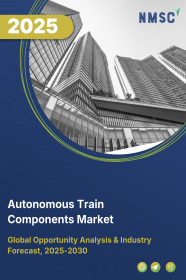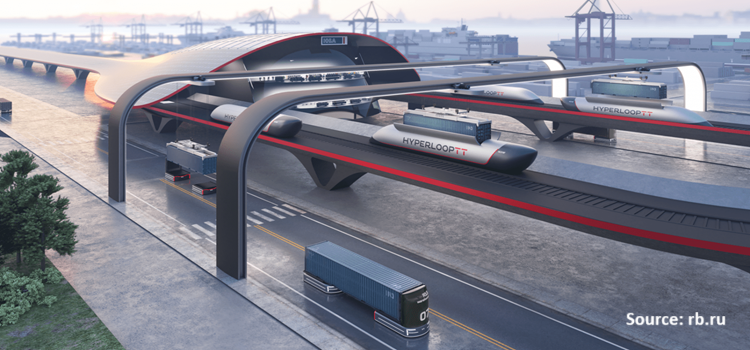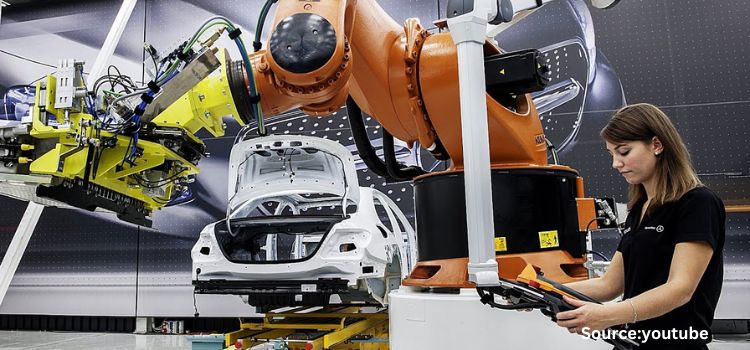
Canada Automotive AI Market by Component (Hardware, Software, and Services), by Technology (Machine Learning & Deep Learning, Computer Vision, and Natural Language Processing), and by Application (Semi-Autonomous and Fully Autonomous) - Opportunity Analysis and Industry Forecast, 2024– 2030
Industry: Automotive & Transportation | Publish Date: 04-Apr-2024 | No of Pages: 101 | No. of Tables: 71 | No. of Figures: 36 | Format: PDF | Report Code : N/A
US Tariff Impact on Canada Automotive AI Market
Trump Tariffs Are Reshaping Global Business
Market Definition
The Canada Automotive AI Market size was valued at USD 125.9 million in 2023, and is predicted to reach USD 946.7 million by 2030, at a CAGR of 33.4% from 2024 to 2030. Automotive Artificial Intelligence, or Automotive AI, refers to the application of machine learning and artificial intelligence technologies in the design, development, and operation of vehicles and related systems within the automotive industry. Automotive AI consists a wide range of applications, including autonomous driving, advanced driver assistance systems (ADAS), predictive maintenance, natural language processing for in-car voice recognition, and improving the overall efficiency and safety of vehicles. This technology enables vehicles to perceive their surroundings, make decisions, and interact with drivers and passengers. This further enhances the driving experience, safety, and efficiency of automotive systems.
Surge in Connected Vehicles is Driving the Adoption of Automotive AI
The automotive industry is witnessing a notable increase in the demand for connected vehicles, marking a pivotal driver for the widespread adoption of Artificial Intelligence (AI). Connected vehicles, leveraging advanced communication technologies and the Internet of Things (IoT), enable real-time data exchange and improved user experiences. In response to this trend, AI plays a crucial role in processing and analyzing the extensive data generated by connected vehicles. Machine learning algorithms contribute to insights into user behavior, traffic patterns, and vehicle performance. This integration of AI in connected vehicles results in features such as predictive maintenance, remote diagnostics, and intelligent navigation systems, transforming traditional automobiles into smart, data-driven platforms. As the demand for connectivity continues to rise, the automotive industry is increasingly relying on AI to deliver vehicles that are not only connected but also smarter, safer, and more efficient.
Growing Integration of IoT in Automotive Industry is Boosting the Market Expansion
The seamless integration of the Internet of Things (IoT) into vehicles stands as a pivotal factor propelling the adoption of artificial intelligence (AI) in the automotive sector. In the contemporary automotive landscape, vehicles are equipped with an array of sensors and connected devices, generating vast streams of real-time data on performance, environmental conditions, and user interactions. The IoT facilitates the interconnectedness of these devices, enabling them to share and communicate data efficiently. Leveraging AI, these connected vehicles can process and analyze the copious amounts of data, offering transformative benefits such as predictive maintenance, advanced driver assistance systems (ADAS), personalized in-car experiences, and optimized traffic management.
Data Privacy and High Cost Associated with Automotive AI Restrains the Market Growth
Data privacy concerns and high costs are collectively restraining the growth of the automotive AI market. Consumers worry about how their personal data is collected, used, and protected by AI systems in vehicles. This led to demands for stringent data privacy measures. Additionally, the high development and integration costs of AI in vehicles can result in higher vehicle prices. This, in turn, potentially limit market adoption, especially among cost-conscious consumers. Balancing data privacy and cost considerations is crucial for the widespread acceptance and growth of automotive AI technologies.
The Rising Prevalence of Advanced Driver Assistance Systems (ADAS) Create Opportunities for the Market
Advanced Driver Assistance Systems (ADAS) represent a pivotal aspect of automotive safety and convenience, employing sensors and cameras to enhance driving experiences. The integration of artificial intelligence (AI) into ADAS plays a crucial role in transforming these systems into intelligent, responsive mechanisms. AI algorithms, powered by machine learning, analyze real-time data from sensors, enabling features such as adaptive cruise control, lane-keeping assistance, and automatic emergency braking. The future opportunity in this domain lies in the continuous refinement of ADAS functionalities through advancements in AI, promising improved accuracy, responsiveness, and a broader range of capabilities.
As the automotive industry continues its pursuit of safer and more efficient driving, the integration of AI into ADAS stands at the forefront, paving the way for the development of increasingly sophisticated and reliable driver assistance technologies. The growing demand for enhanced safety features and regulatory emphasis on advanced technologies in vehicles underscore the immense potential for the automotive AI market within the ADAS segment.
Competitive Landscape
The market players operating in the Canada automotive AI market include NVIDIA Corporation, Alphabet, Inc., Intel Corporation, Microsoft Corporation, IBM Corporation, Qualcomm, Inc., Tesla, Inc., BMW AG, Micron Technology, Xilinx, Inc.
Canada Automotive AI Market Key Segments
By Component
-
Hardware
-
Software
-
Services
By Technology
-
Machine Learning & Deep Learning
-
Computer Vision
-
Natural Language Processing
By Application
-
Semi-Autonomous
-
Fully Autonomous
REPORT SCOPE AND SEGMENTATION:
|
Parameters |
Details |
|
Market Size in 2023 |
USD 125.9 Million |
|
Revenue Forecast in 2030 |
USD 946.7 Million |
|
Growth Rate |
CAGR of 33.4% from 2024 to 2030 |
|
Analysis Period |
2023–2030 |
|
Base Year Considered |
2023 |
|
Forecast Period |
2024–2030 |
|
Market Size Estimation |
Million (USD) |
|
Growth Factors |
|
|
Companies Profiled |
10 |
|
Market Share |
Available for 10 companies |
|
Customization Scope |
Free customization (equivalent up to 80 working hours of analysts) after purchase. Addition or alteration to country, regional, and segment scope. |
|
Pricing and Purchase Options |
Avail customized purchase options to meet your exact research needs. |
KEY PLAYERS
-
NVIDIA Corporation
-
Alphabet, Inc.
-
Intel Corporation
-
Microsoft Corporation
-
IBM Corporation
-
Qualcomm, Inc.
-
Tesla, Inc.
-
BMW AG
-
Micron Technology
-
Xilinx, Inc.

















 Speak to Our Analyst
Speak to Our Analyst





















